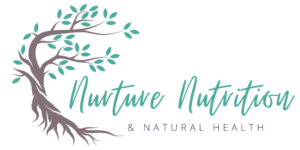While this blog is about introducing you to the concept of thyropause, we will also look at what is going on with our immune systems during Perimenopause, why thyroid disorders, autoimmune disease and allergies can flare, and how to figure out if you’re experiencing symptoms of a more general Perimenopause recalibration or more.
Are your symptoms normal or a sign of something that needs addressing?
Stats show that 1 in 4 Women over 40 are diagnosed with thyroid antibodies. As someone who has suffered from autoimmune thyroid disease and is currently in the thick of Perimenopause I wanted to dive into this deeper. I had never heard of Thyropause and didn’t realise our immune systems could take a hit during Perimenopause.
I personally am not someone that thinks that Perimenopause is a condition that needs fixing, but a time of supporting the hormonal recalibration. However it is important to dig a bit deeper into symptoms, especially debilitating ones to know if they are a symptom of something else that may need addressing.
So this blog is to help bring some awareness to Thyropause, the immune recalibration of Perimenopause and to help you understand if something else deeper might be causing your symptoms.
Overlapping Symptoms
There is a significant overlap in symptoms between Perimenopause, Insulin resistance & Thyroid disease including weight gain, excessive facial hair growth, fatigue, heavy periods, high cholesterol, hair loss and brain fog. It is not just the symptoms that overlap but also the physiology or underlying mechanisms causing the symptoms.

So how do you know what exactly it is causing your symptoms?
Is it normal perimenopause, thyroid disease, insulin resistance or a combo?
Let’s explore Thyropause and what happens to our immune system during Perimenopause below. I already have several blogs on insulin resistance so please read about insulin resistance here. Insulin resistance is something that we will be addressing in the Holistic Hormone Academy membership which is opening for founding members next week before an official launch next year. Thyroid disease requires an individual approach and you can read about how I can help here and do some research here. Ok moving on:
What is thyropause?
Thyropause is not a diagnosis, but a term used to describe hypothyroidism that can be triggered when your sex hormones drop during perimenopause.
If this happens to you, you may start to experience symptoms of hypothyroidism (read more about what these are here) or your perimenopause symptoms may be exacerbated by low functioning thyroid.
The Thyroid and what can happen during Perimenopause
If you remember from my ‘What happens to your hormones in your 40’s (or even late 30’s) blog, during perimenopause we start to lose progesterone and experience wildly fluctuating estrogen.
Thyroid disease can be triggered by the drop in progesterone in peri menopause. Losing progesterone reduces our free or available thyroid hormone. Alongside that, high fluctuating estrogen in perimenopause increases the level of thyroid-binding globulin which means even less available thyroid hormone. On a blood test this would look like a high or increasing TSH as the pituitary in the brain sends more and more thyroid stimulating hormone.
The Autoimmune Picture
You may remember from some of my other thyroid blogs, the main cause of hypothyroidism is thyroid autoimmune disease. The events mentioned above (Perimenopausal progesterone decrease and soaring estrogen) can trigger the autoimmunity that underlies most cases of under and overactive thyroid.
It is important to figure out (if you have thyroid symptoms and an elevated TSH) whether you have thyroid antibodies. Thyroid autoimmune disease is seen by many researchers as a gateway to autoimmunity. Not only that but from a natural health perspective the treatment is different. Thyroid antibodies are not routinely tested so you will probably have to organise the test yourself (or I can) but do ask your GP.
The immune recalibration of Perimenopause
You may also be wondering why your allergies are worse or you suddenly have another inflammatory condition related to your immune system.
Perimenopause is a time of immune recalibration and can be a tipping point for allergies, inflammation and autoimmune disease. Thyroid as mentioned throughout this blog, is a common one and so too are Rheumatoid arthritis and MS.
Our hormones interplay with our immune system. Our immune cells have hormone receptors and hormonal shifts influence our immune system. Most of us understand this when it comes to pregnancy, but we often don’t consider this during perimenopause.
In general – estrogen is activating our immune system while progesterone is calming it. Progesterone helps to supress pro inflammatory cells and upregulates T regulatory (or T Reg) cells. These are like the generals in the immune system army telling the rest of the immune system what to do.
Losing progesterone postpartum and in perimenopause temporarily increases the risk of allergies, autoimmune disease.
This is a temporary shift and our body’s do recalibrate to running off a different fuel over time (no progesterone and low estrogen). It is important to address conditions as they appear but it can also be good to know that it may not be a forever thing.
What to do?
If you are experiencing some of the symptoms listed above and are perimenopausal it is a great time to get your thyroid tested and perhaps insulin too. If this has already been done you can request a copy of your blood tests and make sure you have had more then just TSH and T4 tested (fasting insulin is the insulin test).
I offer blood test interpretation and personalised suggestions in my health and hormone audit and I also offer more in depth thyroid testing. This is the easiest approach – outsource the investigation to me.
Otherwise you can start by reading all of my thyroid blogs, this perimenopause blog and all of the insulin resistance blogs to help you understand a bit more about each and get suggestions on support. The thyroid blogs also have info on the top thyroid nutrients to help.
We will be covering Perimenopause in depth in the Holistic Hormone Academy membership. There will be loads to help with insulin resistance and general immune support and it will be structured and easy to grasp info.
If you have any questions about how I can help you, or if you have booked an audit and want to know what bloods to test prior, feel free to send me a message in the chat box or email me julie@nurturenutrition.co.nz.
I am passionate about seeing Women live their best lives and thriving throughout Perimenopause.





